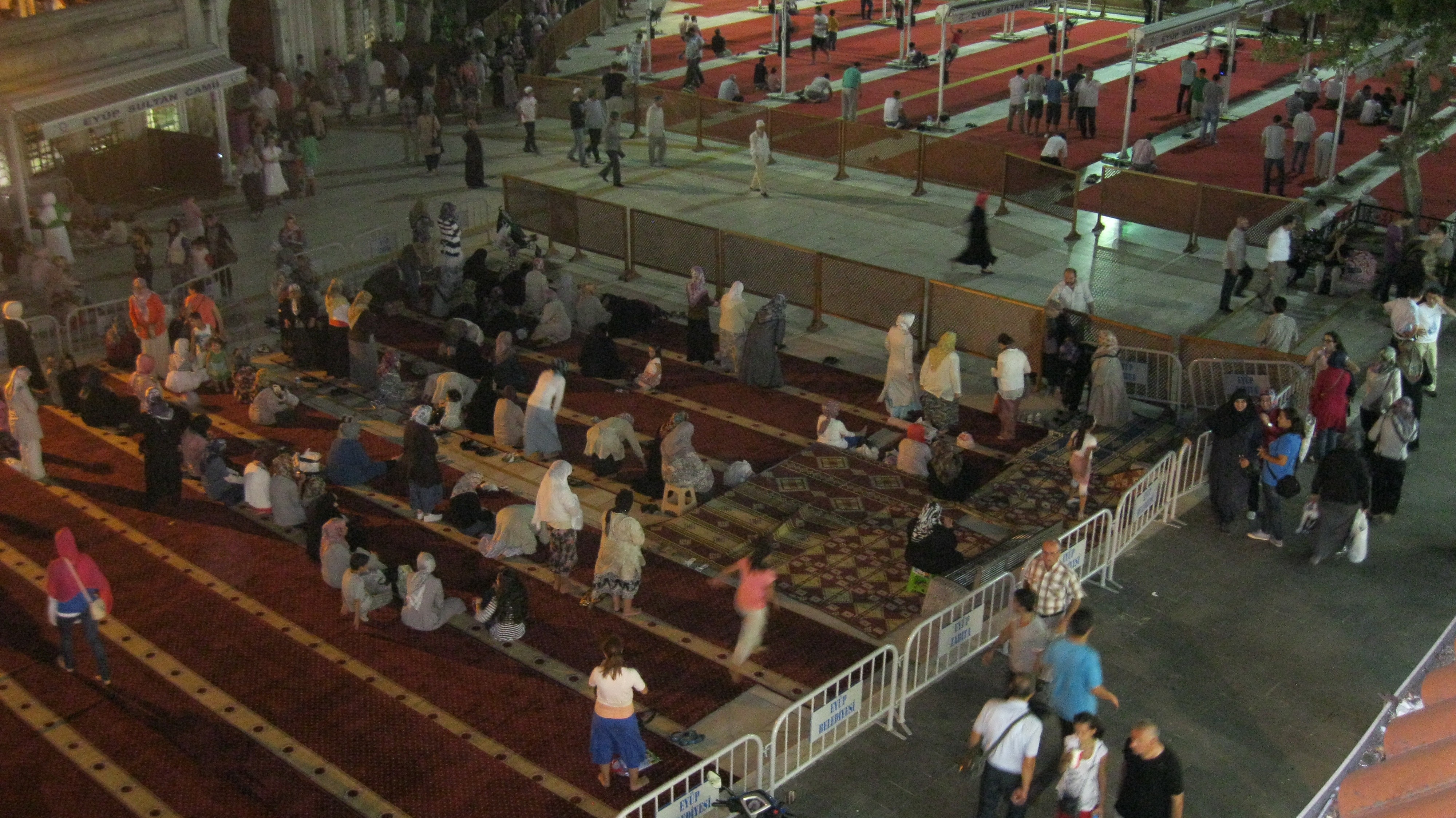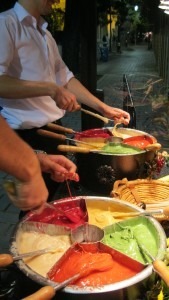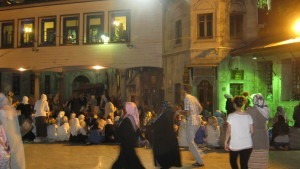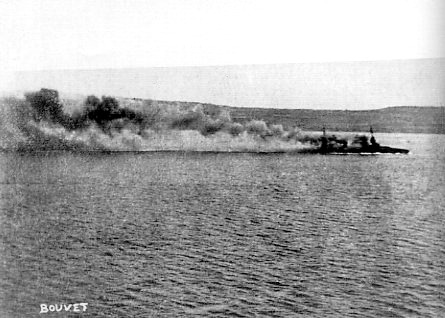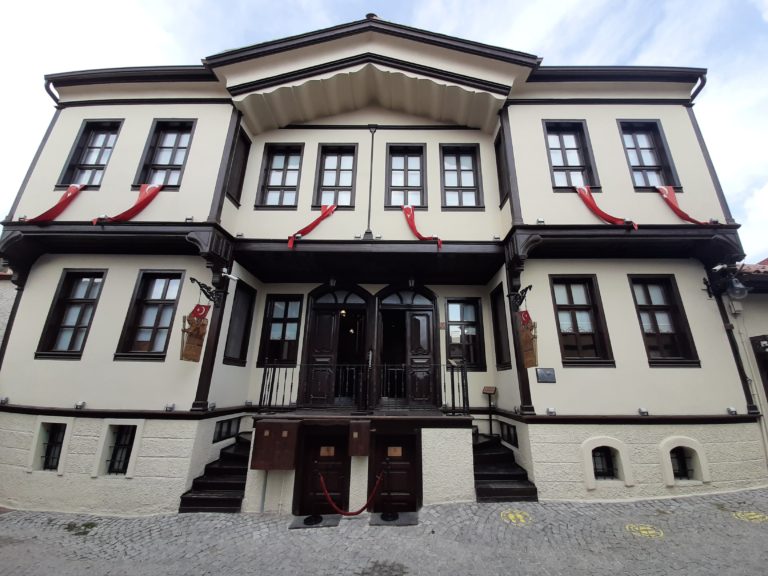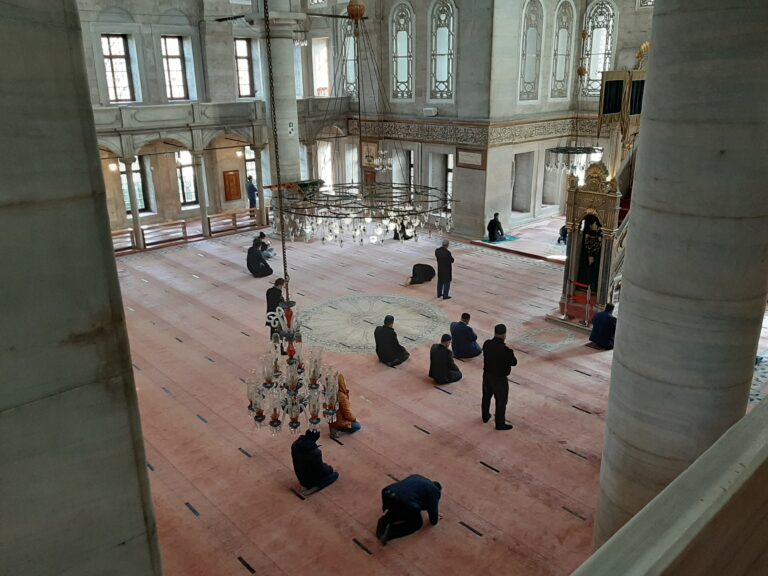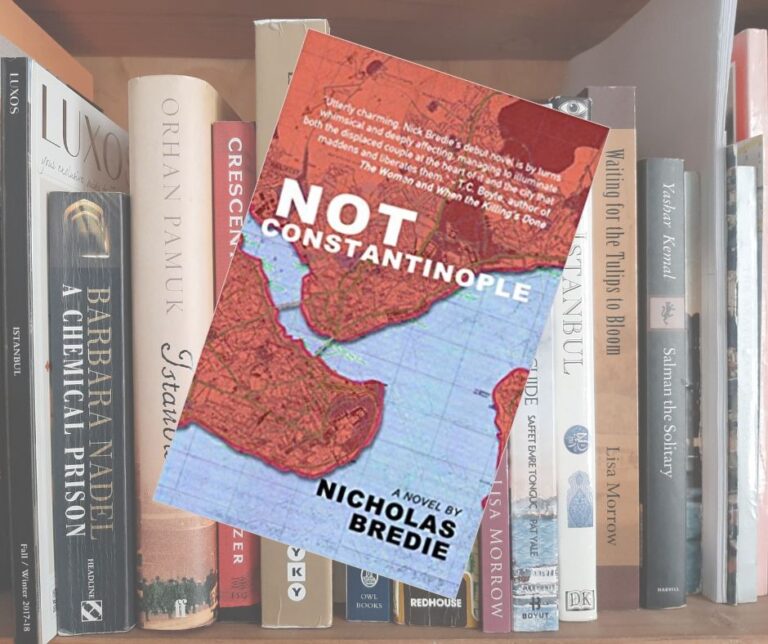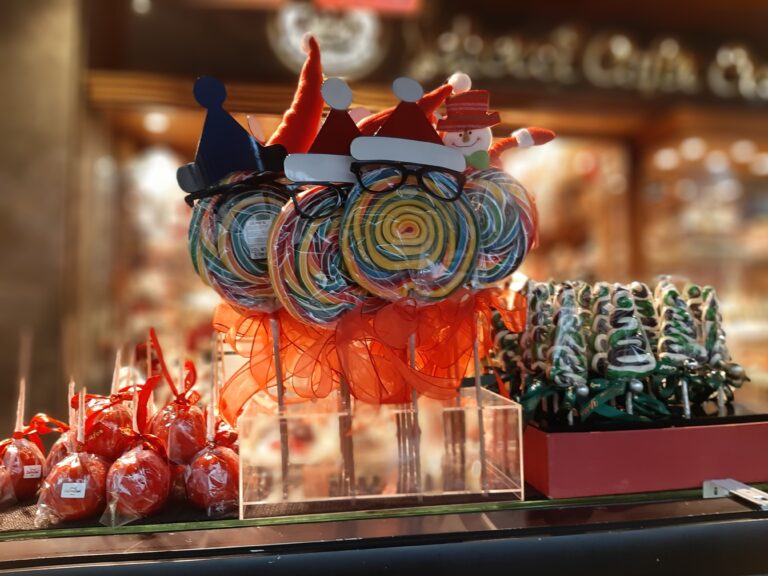My First Turkish Ramazan
For my first Turkish Ramazan I was living in Istanbul. It was November 2000 and I was living in Erenköy, a leafy suburb on the Asian side of the city. At that time there were no natural gas connections so the air was thick with coal smoke from apartment heating systems, darkness fell around 5pm and it was cold. Even though I had travelled a lot in Turkey before, this was the first time I had lived there for any length of time. As a result I wasn’t really aware of the particulars of the fasting month. All I knew was that people didn’t eat or drink anything in daylight hours and the meal held to break the fast was called iftar.
I can still remember the way the normally courteous customers in the upmarket supermarkets I frequented on Bağdat Caddesi were overcome with what I came to call iftar rage. Having been up early to make breakfast, then fasted throughout the day, hungry housewives would menacingly patrol the aisles in search of the perfect ingredients for the much anticipated evening meal. They were tired, they were irritable and they were determined to get home as quickly as possible. Woe betide the ignorant foreigner who came between one of these trolley wielding woman and the check out desk.
Once I accidentally bumped a woman standing in the queue in front of me with my trolley and was subjected to a scathing rendition of complaints. As she raged at me at the top of her voice everyone turned and stared. Apologising profusely I looked at the floor wishing I could just sink into it.
Crossing roads, always life-threatening in Turkey, became even more so. Frantic drivers sped home for the first longed for meal of the day, or in many cases their first cigarette since before dawn. One day, after waiting in the cold with about 200 other passengers for over an hour, I learnt to organise my outings around iftar time. It was essential to plan to get home either well ahead of the meal time or well after it. If you didn’t, you’d end up watching every taxi, bus and dolmuş driver breaking the fast as you stood and shivered in the cold until they finished eating.
Nonetheless Ramazan is a joyous time too, when people share what they have, be it a lot or very little. One night I was crossing the Bosphorus by ferry, basking in the warmth of the onboard heaters and looking forward to a good meal. An old village woman, dressed in a pair of traditional baggy pants called şalvar, numerous bulky cardigans and a hand edged scarf over her freshly washed hair, was sitting opposite me. Everyone was weary, slumping with eyes half closed but she was bright eyed and eager to know the time. Each time she asked, ‘Is it iftar yet?’, no one complained.
Instead they happily checked their watches again and told her to wait. As soon as the minute hand clicked into place she opened the black bag she’d been clutching to her chest and brought out a loaf of Ramazan pide. This special round bread is only baked during Ramazan but she readily offered it around. No one accepted a piece but they all thanked her sincerely and smiled as she ate her simple meal of bread and dates.
Istanbul is modern and diverse, so some people fast while others don’t. I’m not sure of the numbers but looking back over the years it does seem that less people fast now, particularly when Ramazan falls in the hot summer months. Regardless of whether you fast or not, Ramazan in Istanbul is still a special occasion. People spend time together in whatever way best suits them, they remember what they have and are grateful for it, local councils provide free meals for the poor, and Sultanahmet and Eyüp take on different complexions.
Most tourists go to Sultanahmet to experience the ‘real ‘Turkey but it is a foreign place to me. Although it has beautiful and historical mosques and palaces it feels like a Disney version of Turkey catering to Western expectations of some imaginary and mystical east. The one time I don’t feel like this is during Ramazan, when Sultanahmet once again belongs to the Turks.
The open area that was the ancient Hippodrome is filled with picnic tables, stalls selling döner kebab and other foods, and there is a nightly fete. Well before dark, hundreds of families secure their place, sitting patiently with bottles of water set out in readiness, packets of dates from Saudi Arabia and their meals in front of them, waiting for iftar to begin. Those who miss out on a table sit formally on the ground on the carpets and rugs they have brought along, just in case.
There is an air of expectancy and excitement, repeated in the queues of chattering people waiting patiently for a table at one of the many restaurants that more usually feed Western tourists. Large groups of girls and women demurely clad in headscarves and pardesu, the long coats they favour, use Ramazan as a time to sightsee in their own city and to catch up with friends. Tourists used to casually picking a restaurant at the last minute are stunned by the length of the queues and appear strangely out of place.
After dinner everybody strolls through the many displays of Turkish handicrafts. You can watch felt being made, silver wire being turned, exquisite works of calligraphy being created, and buy hand beaten copper coffee pots, leather shepherd shoes and delicate lace work items. For those with any room left there are sweet treats such as fairy floss, helva, and goat’s milk icecream to indulge in.
Along the Golden Horn over in Eyüp, Ramazan also has its own character. In the last few decades Eyüp has become associated with women in head-to-toe black çarşaf, extremes of religion and an intolerance of difference. Yet during the fasting month it is an almost magical place, with hundreds of people visiting its famous mosque of the same name. Each night the surrounding square and first courtyard are alive with people coming to pray before and after an iftar spent with family and friends.
The inner courtyard is still home to two large plane trees growing on a platform where the Girding of the Sword of Osman ceremony would take place to mark the inauguration of a new sultan. The tradition dates back to the time of Mehmet the Conqueror. The faithful will also visit the tombs and shrines associated with the mosque.
It is an enchanted month where normal routines are suspended and plans postponed until ‘after Bayram’, after the holiday to mark the end of the fasting month. Most people stay out late, for different reasons, but always with the people who are important to them. Some families camp out all night on picnic rugs, hoping to catch the early morning breezes blowing off the Bosphorus. Others spend the night driving dodgem cars in nearby Feshane. Last year there was a funfair where you could eat even more icecream and fairy floss, experience 3D cinema in a van, shoot at targets using modified guns, or throw darts and win a soft toy.
On Kadir Gecesi, the night it is said your prayers will be answered, people stay up all night, performing the Muslim form of prayer called namaz or reading the Koran. Mosques the breadth of the city have twinkling fairy lights and banners strung up between the minarets. The banners on them used to read ‘Bayramı Kutlu Olsun’ in modern Turkish and now they say ‘Bayramı Mubarek Olsun’, harking back to earlier times. Whatever the language, the year or the place, the message and the meaning of Ramazan remains unchanged.
You’ll find this story and many more in my book Exploring Turkish Landscapes: Crossing Inner Boundaries.
******************************
Planning to come to Istanbul or Turkey? Here are my helpful tips for planning your trip.
For FLIGHTS I like to use Kiwi.com.
Don’t pay extra for an E-VISA. Here’s my post on everything to know before you take off.
However E-SIM are the way to go to stay connected with a local phone number and mobile data on the go. Airalo is easy to use and affordable.
Even if I never claim on it, I always take out TRAVEL INSURANCE. I recommend Visitors Coverage.
I’m a big advocate of public transport, but know it’s not suitable for everyone all the time. When I need to be picked up from or get to Istanbul Airport or Sabiha Gokcen Airport, I use one of these GetYourGuide website AIRPORT TRANSFERS.
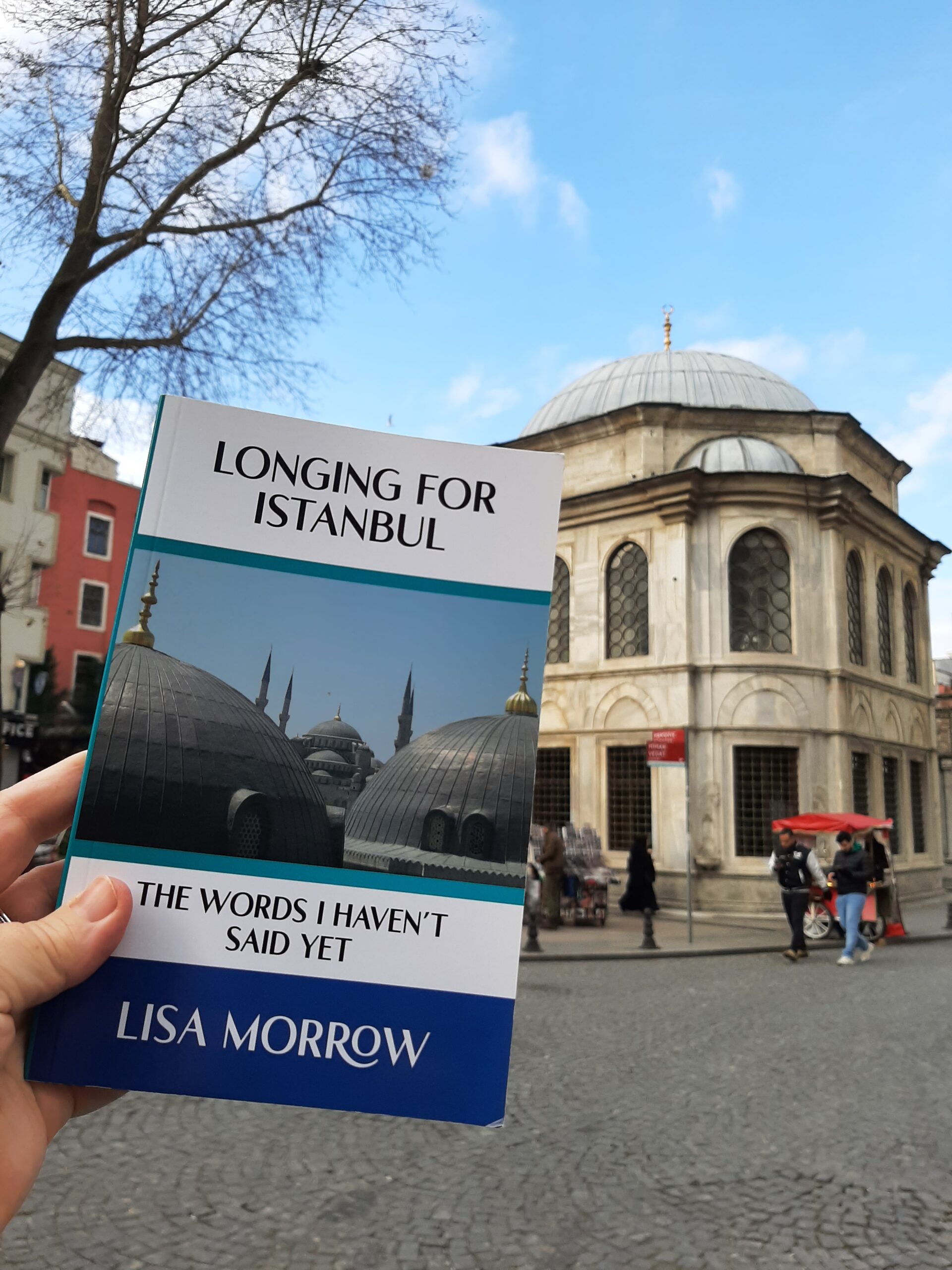
ACCOMMODATION: When I want to find a place to stay I use Booking.com.
CITY TOURS & DAY TRIPS: Let me guide you around Kadikoy with my audio walking tour Stepping back through Chalcedon or venture further afield with my bespoke guidebook Istanbul 50 Unsung Places. I know you’ll love visiting the lesser-known sites I’ve included. It’s based on using public transport as much as possible so you won’t be adding too much to your carbon footprint. Then read about what you’ve seen and experienced in my three essay collections and memoir about moving to Istanbul permanently.
Browse the GetYourGuide website or Viator to find even more ways to experience Istanbul and Turkey with food tours, visits to the old city, evening Bosphorus cruises and more!
However you travel, stay safe and have fun! Iyi yolculuklar.
